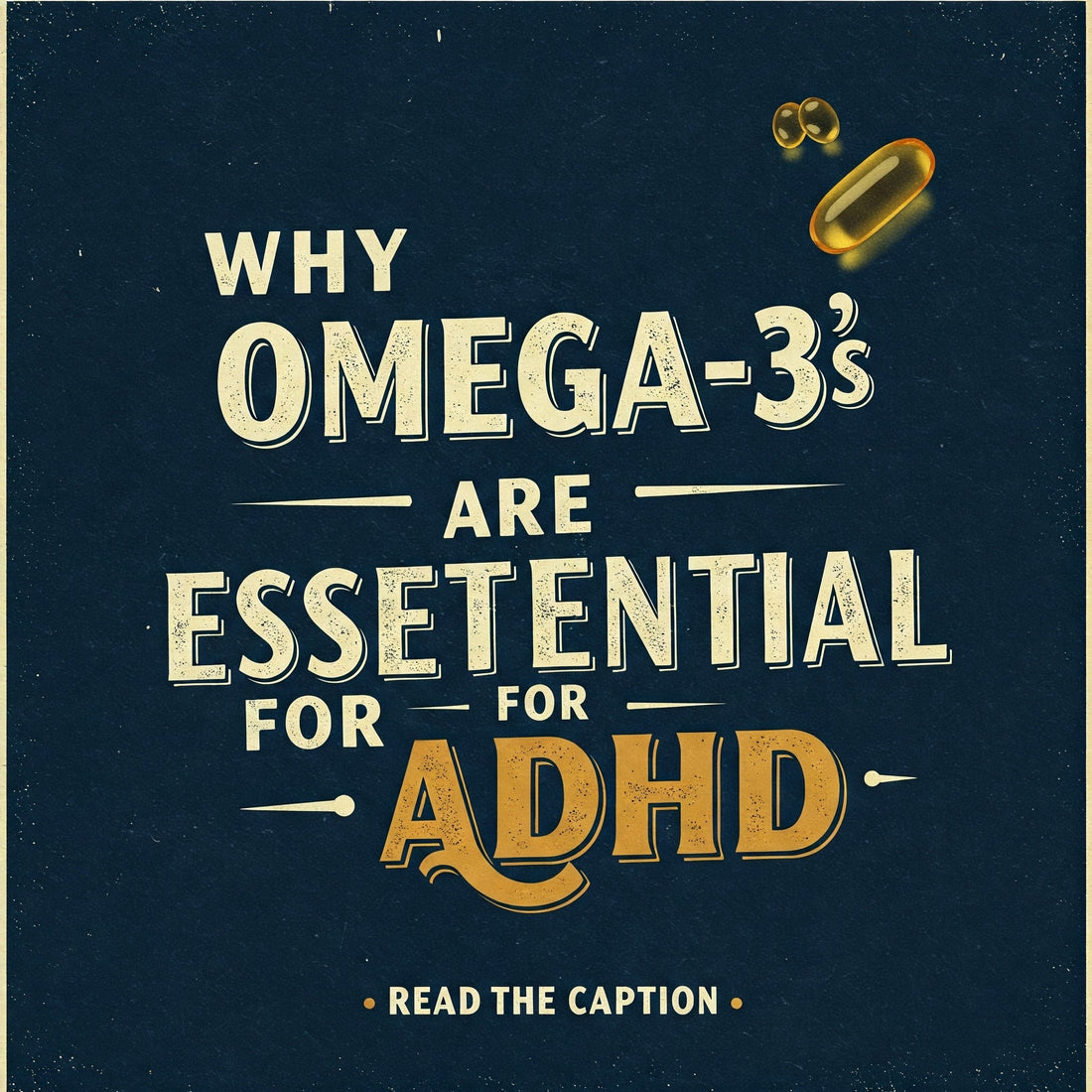
Omega-3 Fatty Acids and ADHD: Can Fish Oil Really Help Focus?
Share
Living with ADHD often means navigating challenges with focus, attention, and impulsivity. While various strategies and treatments exist, many people explore nutritional approaches to support brain health and potentially ease symptoms. One supplement that frequently comes up in conversation is Omega-3 fatty acids, often found in fish oil. But can it really make a difference for ADHD?
What are Omega-3 Fatty Acids?
Omega-3s are essential polyunsaturated fats, meaning our bodies can't produce them, and we must get them from our diet. The two most crucial types for brain health are:
- EPA (Eicosapentaenoic Acid): Known for its anti-inflammatory properties.
- DHA (Docosahexaenoic Acid): A major structural component of the brain and retina.
Both EPA and DHA play vital roles in brain cell function, communication between brain cells, and regulating inflammation.
The Brain Connection: Why Omega-3s Matter for ADHD
The brain is incredibly rich in fats, particularly DHA, which is crucial for the structure and fluidity of cell membranes. These membranes are essential for neurotransmitter function – the chemical messengers that regulate mood, focus, and behaviour. Some theories suggest that individuals with ADHD might have differences in fatty acid metabolism or lower levels of Omega-3s, potentially impacting neurotransmitter systems like dopamine, which is heavily implicated in ADHD (learn more about ADHD and Dopamine here).
Furthermore, Omega-3s possess anti-inflammatory properties. Chronic inflammation is increasingly being studied for its potential role in various neurological conditions, and managing inflammation might indirectly support overall brain health.
What Does the Research Say?
Research into Omega-3s and ADHD has yielded mixed results, but it's an active area of study. Here's a general overview:
- Potential Benefits: Some studies suggest that Omega-3 supplementation, particularly with higher EPA ratios, may lead to modest improvements in ADHD symptoms like hyperactivity, impulsivity, and inattention in some children and adults. [External Link: Example Review Study]
- Inconsistencies: Other studies have found no significant benefits, or the effects were small. Differences in study design, dosage, EPA/DHA ratios, and participant populations likely contribute to these varying outcomes.
- Not a Replacement: It's crucial to understand that Omega-3s are not considered a replacement for established ADHD treatments like medication or behavioural therapy. They are best viewed as a potential complementary approach.
For more general tips on managing ADHD symptoms through diet, check out our article on Fueling Focus: Nutrition Tips for Managing ADHD Symptoms.
Getting Your Omega-3s: Food vs. Supplements
You can increase your Omega-3 intake through:
- Fatty Fish: Salmon, mackerel, herring, sardines, and anchovies are excellent sources.
- Algal Oil: A vegan source of both EPA and DHA.
- Other Sources: Flaxseeds, chia seeds, and walnuts contain ALA (Alpha-Linolenic Acid), another Omega-3, but the body's conversion of ALA to EPA and DHA is often inefficient.
Supplements (like fish oil or algal oil) are a popular way to ensure consistent intake, especially if dietary sources are limited.
Important Considerations Before Supplementing
Always consult your doctor or a qualified healthcare professional before starting any new supplement, especially if you have ADHD or are taking medication. They can help determine if Omega-3s are appropriate for you, discuss potential interactions, and recommend a suitable dosage and quality product.
- Dosage: Optimal dosage for ADHD is still debated.
- Quality: Look for reputable brands tested for purity (heavy metals like mercury).
- EPA/DHA Ratio: Some research suggests higher EPA ratios might be more beneficial for certain ADHD symptoms.
Conclusion
Omega-3 fatty acids, particularly EPA and DHA, are essential for brain health and show some promise as a complementary approach for managing certain ADHD symptoms in some individuals. However, research is ongoing, and results vary. They are not a cure or a substitute for primary ADHD treatments.
If you're considering Omega-3s, focus on dietary sources first and discuss supplementation thoroughly with your healthcare provider to make an informed decision that fits within your overall lifestyle approach to managing ADHD.
Disclaimer: This article is for informational purposes only and does not constitute medical advice. Always consult with a qualified healthcare professional before making any decisions about your health or treatment.
